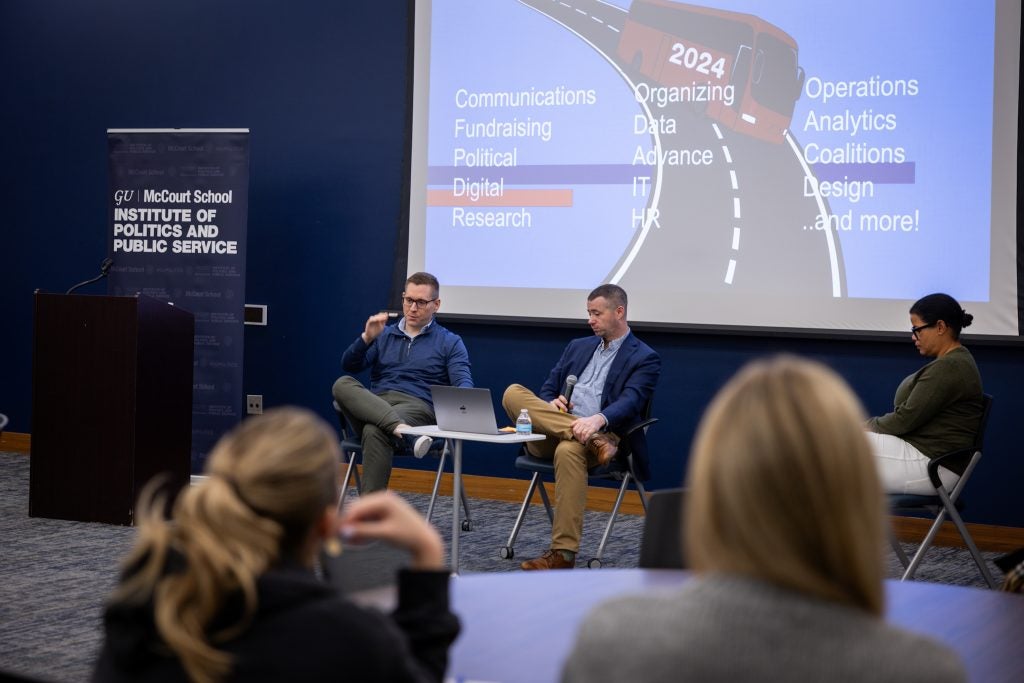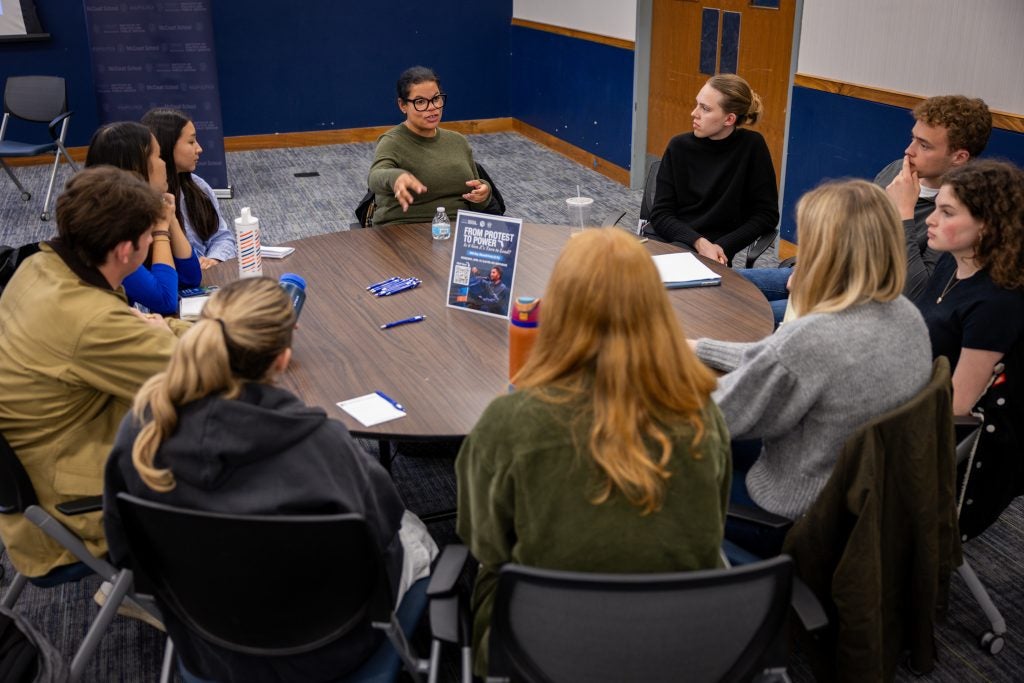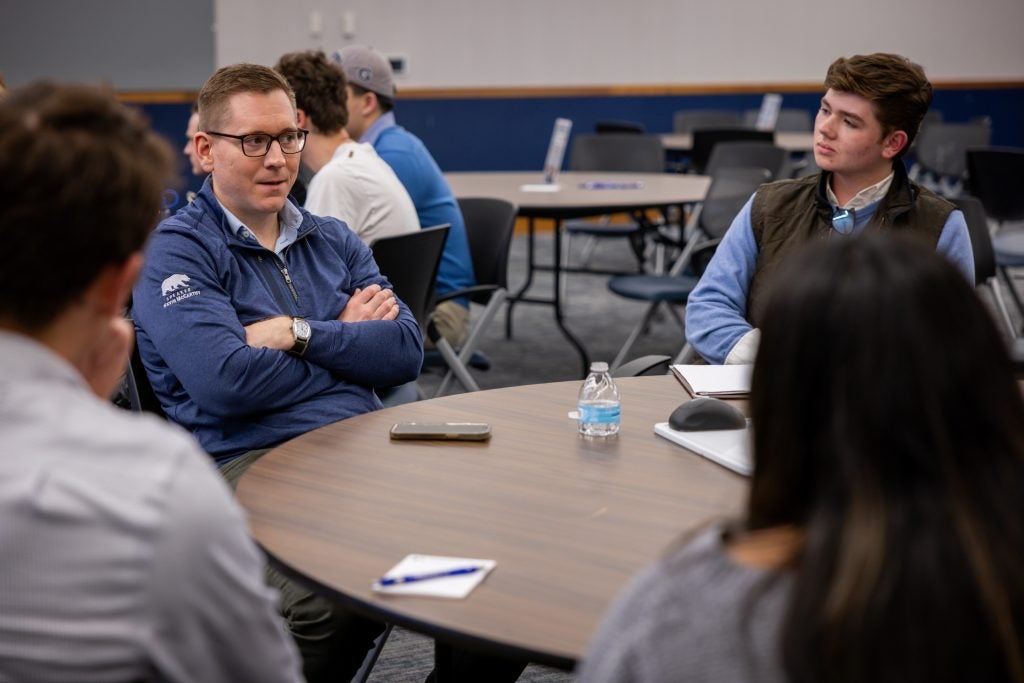On Tuesday April 2, 2024, Georgetown Students gathered in the Healey Family Student Center Social Room to hear from Mike Thom, Political Director of the National Republican Congressional Committee, and Rebecca Pearcey, Former Political Director & Senior Advisor for Elizabeth Warren for President and GU Politics Fall ‘21 Fellow about how to get a job on a political campaign.
Student Advisory Board members Alicia Gopal (C’25) and Kenneth Jackson (B’26) kicked off the event by introducing the speakers and their backgrounds which cover a range of experiences on political organizing and campaigning. The panel was moderated by GU Politics Director of Programming Scott Siebel.
Pearcey and Thom started the conversation by describing how they got their first jobs with campaigns. They both reflected on how volunteering, knocking on doors and field organizing characterized their early careers. Siebel emphasized the role of field work in his path, too.
Thom explained that progressing in your career and gaining experience can be challenging and your entry level job will not necessarily be what you want to do.
“If you have a good attitude about it, people are going to give you more responsibility,” Thom said, encouraging students to put in the time and work hard. “Humility goes a long way and you have to pay your dues,” he added.
Pearcey also urged students to gain experience, noting that the skills gained from campaign work are more important than actually winning the election.
“You don’t even have to win the campaign,” she said. “Still, you’re building on the experiences that you take from campaign to campaign.”
Siebel agreed that finding campaign work can be tough and takes time. “Persistence is key and follow up is essential,” he said.
Siebel then asked the panelists what they look for when hiring people to work for a campaign. Thom said that reaching out directly to individuals you want to work with and expressing interest is the key to setting yourself apart. Thom also emphasized the importance of finding and using connections.
“Work your network as much as you can,” Thom said. “It is a very small world.”
Next, students had the opportunity to ask the panelists questions. One student asked where to look to get a start in campaigning and if it is common to work in a place where you don’t have geographic ties.
Pearcey and Thom agreed that experience is built by following exciting races and pursuing good work opportunities.
“The best experiences are usually not where you live,” Thom said.
On working on small versus big races, Pearcey noted that smaller races can be a good opportunity to gain varied experiences. “You will learn how to figure out what other departments are doing and how it impacts what you’re doing,” she said.
Another student asked how to let supervisors know you are interested in moving up and growing your experience. The panelists encouraged students to be direct and communicate their interests.
Having emphasized the importance of networking, Pearcey, Thom and Siebel concluded the event by speaking to students in small groups. They encouraged students to share more about their potential career paths and offered their advice on breaking into the field.
This article was written by Jane Wright, a first-year student in the McCourt School of Public Policy.



